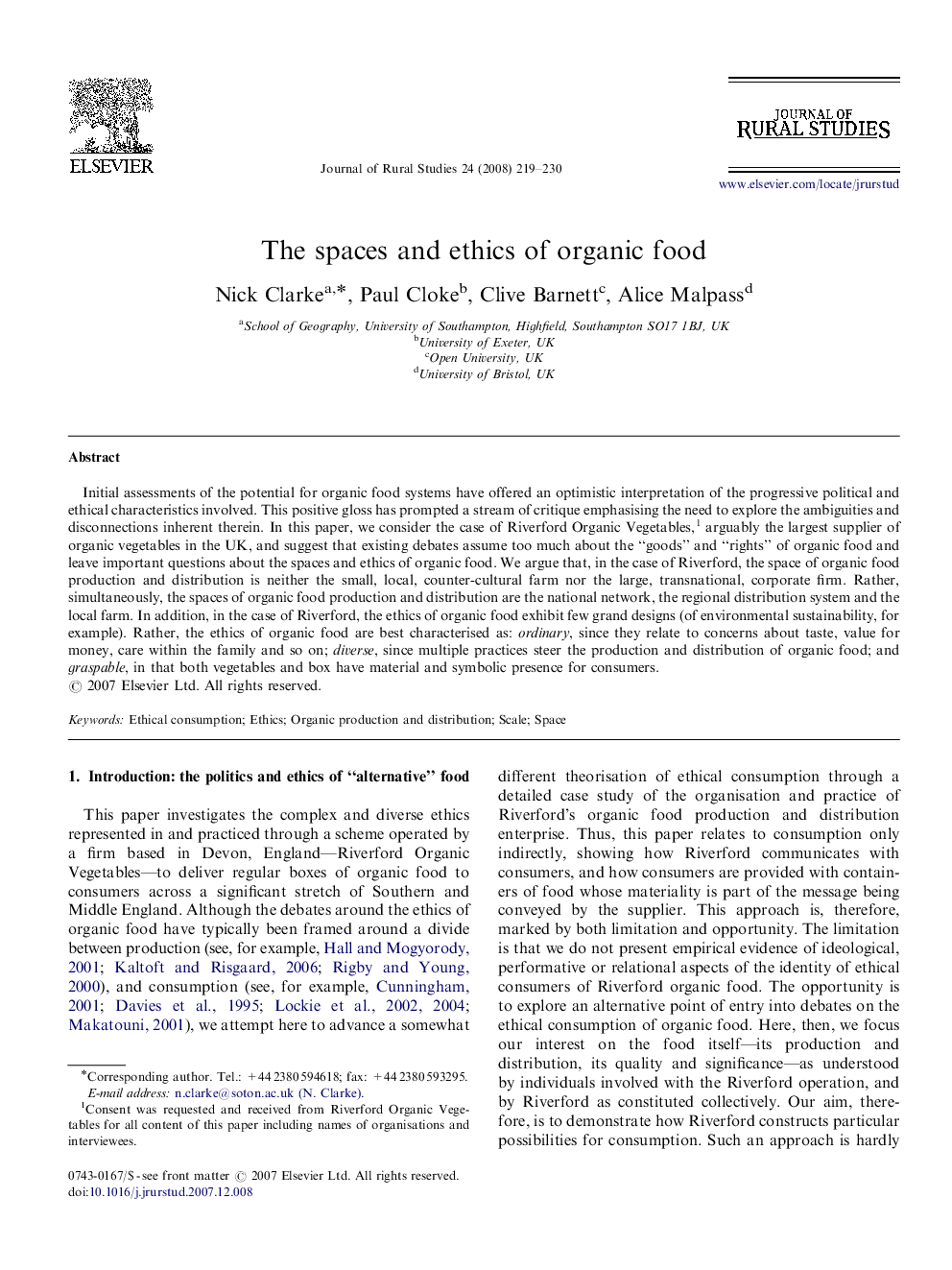| Article ID | Journal | Published Year | Pages | File Type |
|---|---|---|---|---|
| 92576 | Journal of Rural Studies | 2008 | 12 Pages |
Initial assessments of the potential for organic food systems have offered an optimistic interpretation of the progressive political and ethical characteristics involved. This positive gloss has prompted a stream of critique emphasising the need to explore the ambiguities and disconnections inherent therein. In this paper, we consider the case of Riverford Organic Vegetables,1 arguably the largest supplier of organic vegetables in the UK, and suggest that existing debates assume too much about the “goods” and “rights” of organic food and leave important questions about the spaces and ethics of organic food. We argue that, in the case of Riverford, the space of organic food production and distribution is neither the small, local, counter-cultural farm nor the large, transnational, corporate firm. Rather, simultaneously, the spaces of organic food production and distribution are the national network, the regional distribution system and the local farm. In addition, in the case of Riverford, the ethics of organic food exhibit few grand designs (of environmental sustainability, for example). Rather, the ethics of organic food are best characterised as: ordinary, since they relate to concerns about taste, value for money, care within the family and so on; diverse, since multiple practices steer the production and distribution of organic food; and graspable, in that both vegetables and box have material and symbolic presence for consumers.
